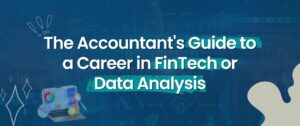
Embracing the Start of Your New Journey

Stepping into a tech role after switching careers can feel like jumping into a fast-moving train. The pace is different, the environment is new, and the expectations may seem daunting. Yet, this transition is also filled with endless opportunities. Your first 90 days are not just a trial period—they are the building blocks of your long-term success in the industry. During this time, you set the tone for how you will be perceived, how quickly you will adapt, and how effectively you can contribute.
Understanding the Transition Phase
Transitioning into tech isn’t simply about landing a job—it’s about integrating into an entirely new professional identity. The first 90 days are best viewed as a structured learning journey. It’s your chance to observe, absorb, and adapt while also delivering small but meaningful contributions. Think of it as your probationary “orientation period,” where every step you take brings you closer to being recognized as a valuable member of your team.
Building the Right Mindset from Day One
Before diving into the technical details, start with your mindset. Career changers often battle impostor syndrome, feeling like they don’t belong in a room full of seasoned professionals. But here’s the truth: your unique perspective is an asset. You bring transferable skills and problem-solving approaches that others may not have. Approaching each challenge with curiosity rather than fear will not only help you learn faster but also make you stand out as someone who’s resourceful and adaptable.
Learning the Core Technical Skills
While mindset is crucial, you can’t ignore the importance of sharpening your technical expertise. In your first 90 days, focus on mastering the tools, languages, or frameworks most relevant to your role. If you’re a developer, practice coding challenges daily. If you’re a data analyst, dive into SQL, Excel, or visualization tools. For product roles, learn the workflow software your team uses. Don’t try to learn everything at once; instead, prioritize the skills that impact your daily work and build confidence gradually.
Navigating Company Culture
Every workplace has its own rhythm. From how teams communicate to how decisions are made, culture defines how comfortable you feel and how effectively you can perform. Take time to observe: Do people prefer Slack messages or emails? Are meetings collaborative brainstorming sessions or strictly formal? Understanding these nuances helps you avoid cultural missteps while showing that you’re adaptable.
Setting Short-Term Goals
Breaking down your 90 days into smaller, achievable milestones is one of the best ways to stay focused and motivated. For example:
- First 30 days: Focus on learning, understanding workflows, and completing onboarding tasks.
- Next 30 days: Start contributing to small tasks or projects, ask questions, and showcase your growing knowledge.
- Final 30 days: Take initiative, deliver meaningful contributions, and demonstrate how you can add long-term value.
By tracking your progress, you’ll have tangible proof of your growth and achievements when it’s time for performance reviews.
Building Relationships with Your Team
In the tech world, collaboration is everything. Success rarely happens in isolation. Introduce yourself confidently, ask for coffee chats with teammates, and be present during discussions. When you show genuine interest in others’ work, you not only build trust but also expand your understanding of how different roles interconnect.
Finding a Mentor or Guide
One of the smartest moves in your first 90 days is to find a mentor. This doesn’t always mean someone with a formal title; it could be a colleague who has been in the company longer and is willing to share insights. A mentor can help you avoid mistakes, navigate office dynamics, and accelerate your learning curve. Their guidance can be the bridge between struggling in silence and thriving with support.
Balancing Confidence and Humility
Striking the right balance in your approach is vital. Come across as confident in your abilities and eager to contribute, but never pretend to know everything. People respect those who admit gaps in their knowledge while showing a willingness to learn. Being too passive can make you seem disengaged, while being overconfident can alienate teammates.
Embracing Feedback and Iteration
Feedback can feel intimidating at first, but it’s one of the fastest ways to improve. Treat feedback as a growth tool, not a personal attack. If your code gets reviewed and returned with suggestions, study those changes carefully. If your presentation receives constructive criticism, apply the advice the next time. Every cycle of feedback and iteration brings you closer to mastery.
Overcoming Impostor Syndrome
Impostor syndrome is common, especially when transitioning careers. You might feel that you don’t deserve your role or that others know far more than you. The key is to reframe this mindset: instead of comparing yourself to others, measure your progress against your past self. Celebrate how far you’ve come and remember that even the most experienced professionals once started from scratch.
Leveraging Past Experiences in a New Way
Your old career isn’t irrelevant—it’s your secret advantage. Skills like communication, leadership, analytical thinking, or client management often translate well into tech. For instance, if you were a teacher, your ability to simplify complex ideas can make you an effective communicator in technical discussions. If you came from finance, your attention to detail can make you stand out in quality assurance or data analysis.
Time Management in a Tech Environment
The fast pace of tech can quickly overwhelm newcomers. With meetings, tasks, deadlines, and learning all competing for your attention, strong time management becomes essential. Use productivity tools like Trello, Notion, or Jira to stay organized. Break larger projects into smaller, manageable tasks, and always prioritize based on urgency and importance.
Celebrating Small Wins
It’s easy to overlook your progress when you’re busy learning, but celebrating small wins can fuel motivation. Solved your first bug? Celebrate. Successfully presented an idea in a meeting? Recognize it. These small achievements build confidence and remind you that you’re on the right track.
Preparing for Long-Term Growth Beyond 90 Days
The first 90 days are just the beginning. Once you’ve built a foundation, it’s time to think long-term. Continue investing in learning—whether through online courses, certifications, or hands-on projects. Stay updated with industry trends and don’t shy away from bigger responsibilities. Growth in tech is continuous, and your willingness to evolve will define your career trajectory.
Conclusion
Your first 90 days as a career changer in a tech role are about much more than survival—they are about creating momentum that will carry you forward. By approaching this period with the right mindset, focusing on core skills, integrating into company culture, and leveraging your past experiences, you can position yourself as a valuable team member. Remember, this journey is not about being perfect; it’s about being persistent, adaptable, and eager to grow.
Unlock your tech potential with Codeed Labs – start learning, building, and growing today.
FAQs
Q1: How can I make the most of my first 30 days in a new tech role?
Focus on onboarding, understanding workflows, and observing team dynamics. Don’t rush into proving yourself—lay a strong foundation first.
Q2: What’s the biggest mistake career changers make in their first 90 days?
Trying to do too much at once. It’s better to prioritize, learn steadily, and deliver consistent contributions rather than overloading yourself.
Q3: How do I balance learning and delivering value in the early stages?
Allocate time daily for learning while also taking on small, manageable tasks that contribute to the team’s goals.
Q4: Is it important to find a mentor early on?
Yes, a mentor can significantly reduce your learning curve and provide guidance that you may not get through formal onboarding.
Q5: What should I focus on after completing my first 90 days?
Shift toward larger responsibilities, pursue continuous learning, and start exploring long-term career goals such as specialization or leadership.
Table of Content
 5.0
5.0
Unlock your new design team today
Get a team of skilled professionals and all the benefits that come with top-grade in-house designers—for a flat fee.
Book a free call


